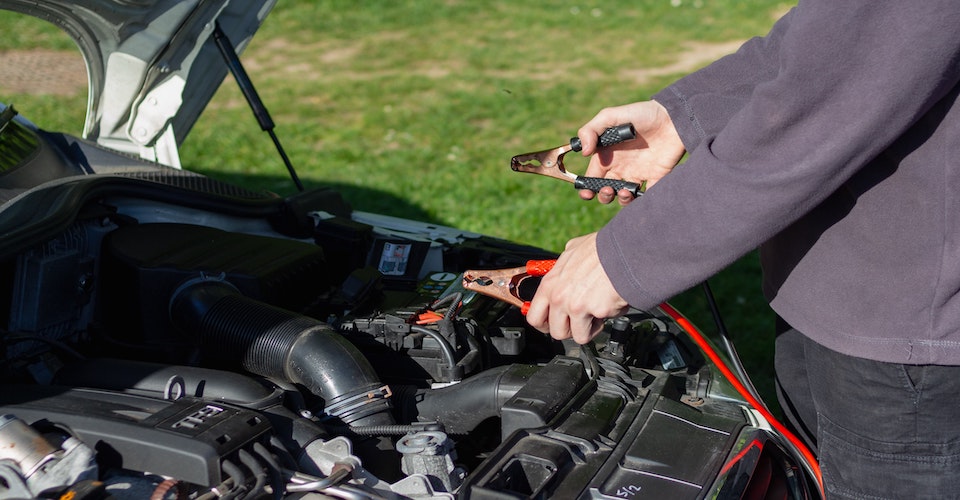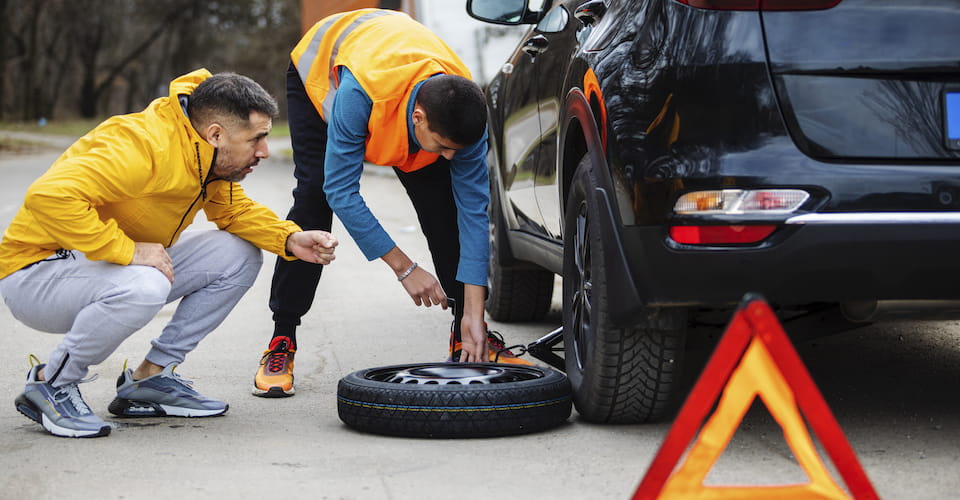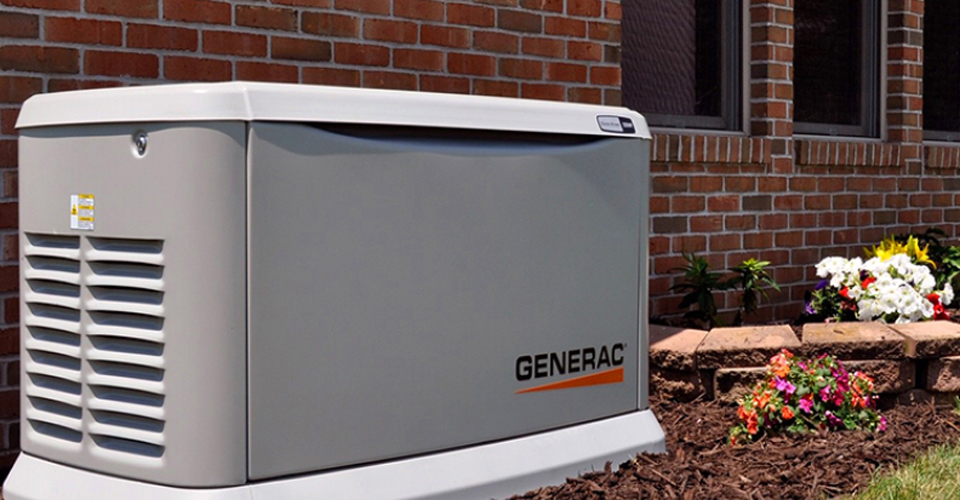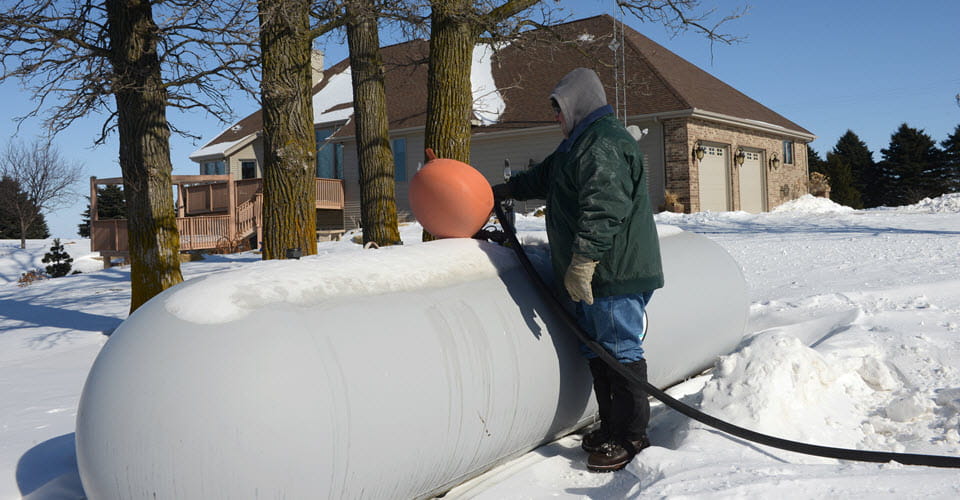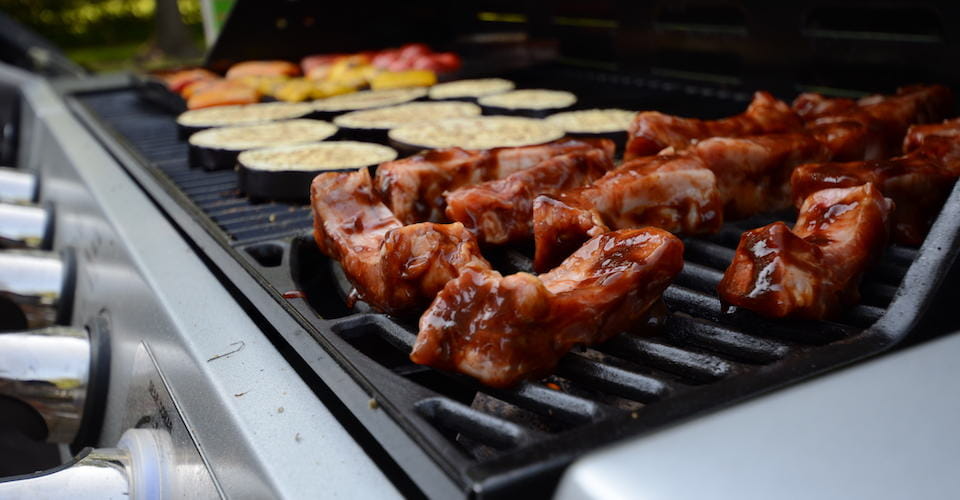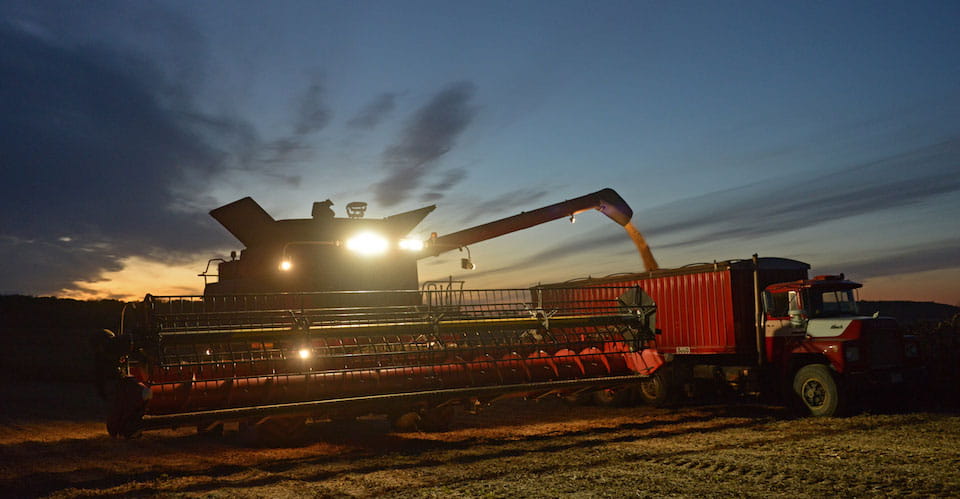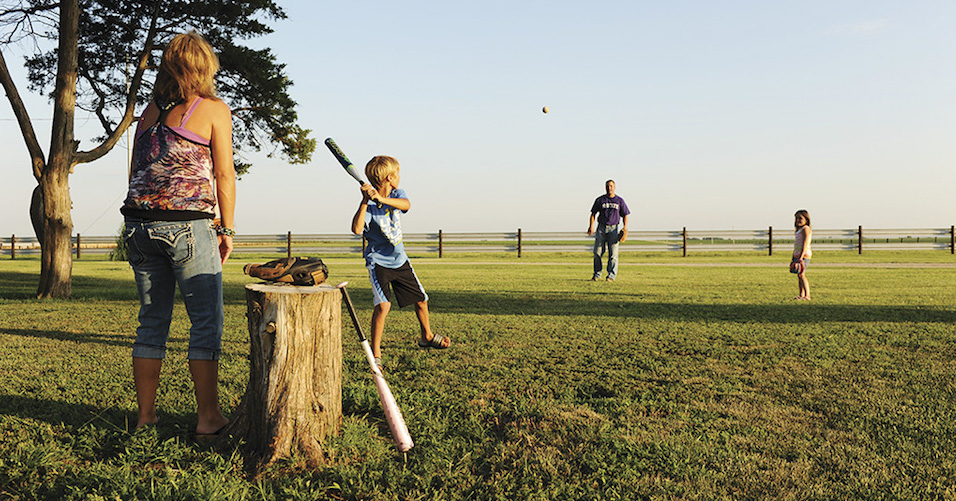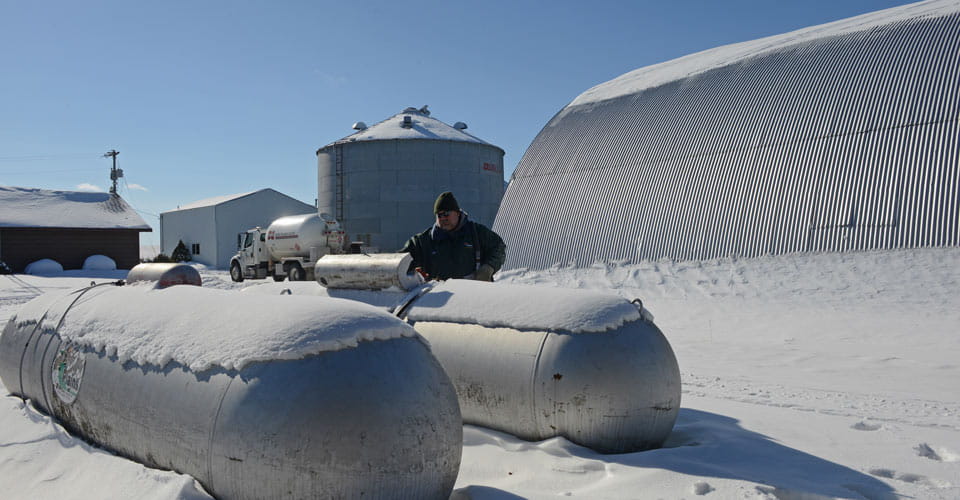
There are many ways to keep your home powered efficiently and effectively this winter with Cenex® branded propane, but make sure to start planning early. To help, here are six propane safety tips to prepare your home for whatever Mother Nature has in store this winter.
1. Use a propane-powered generator.
During a winter storm, it’s common to lose power and sometimes it can take days for roads to be accessible to repair crews. No one wants to risk going that long without power. With a propane-powered generator, you can rest easy knowing you’ll have an uninterrupted source of power during blackouts. Propane works well as a backup power source because even when it’s stored indefinitely, it will still be as good as new.
2. Clearly mark outdoor propane tanks.
It may be easy to spot your propane tanks in ideal conditions, but if a winter storm hits, finding them under several feet of snow can be a much more difficult job. Mark the location of your propane tanks with a flag, pole or stake. When selecting a marker, be sure to choose something that’s taller than the average snowfall height in your area.
3. Have an indoor-safe propane heater.
Propane tanks provide the main source of heat in propane-powered homes. However, indoor propane heaters can be useful during a power outage as a secondary source of heat, but it’s important to avoid risk of carbon monoxide poisoning. Indoor propane heaters should have an oxygen depletion sensor device that automatically shuts off the heater when the oxygen in the surrounding space drops to an unsafe level. These heaters should also include a tip-over shutoff feature. Carefully read product packaging to ensure you’re using your indoor propane heater safely.
4. Remove snow and ice from outdoor propane tanks.
In the event your tanks become covered by snow, use a broom to clear them off. You’ll want to keep your propane tanks exposed to minimize the risk of collisions. For easy access to your tanks, maintain a clear pathway to them.
5. Notify snowplow contractors of outdoor propane tanks.
To keep you and your family safe after a heavy snowfall, make sure your snowplow contractor is aware of all propane tanks on your property. If a snowplow comes into contact with a propane tank, it's a potentially serious safety hazard.
6. Manage your propane supply.
Make sure you have an adequate propane supply to last through a storm cleanup. Even after a storm has passed, roads can be inaccessible by delivery trucks for days. And if you depend on propane for heat, running out can be a big problem. Talk with your propane retailer to lock in the best propane price possible when stocking your supply to ensure you’re well covered through periods of interrupted delivery.
One easy way to make sure your propane tanks are topped off frequently is to set up automatic deliveries with your propane retailer. To learn about automated propane delivery from Cenex, talk to YOUR LOCAL CENEX PROPANE DISTRIBUTOR.



